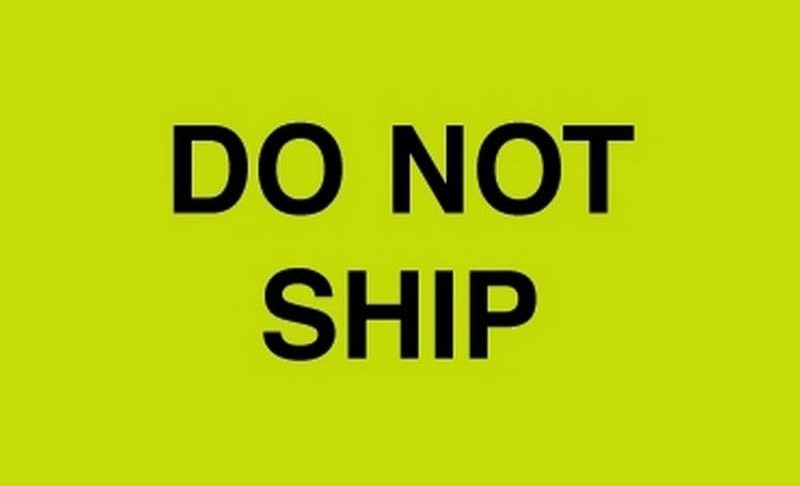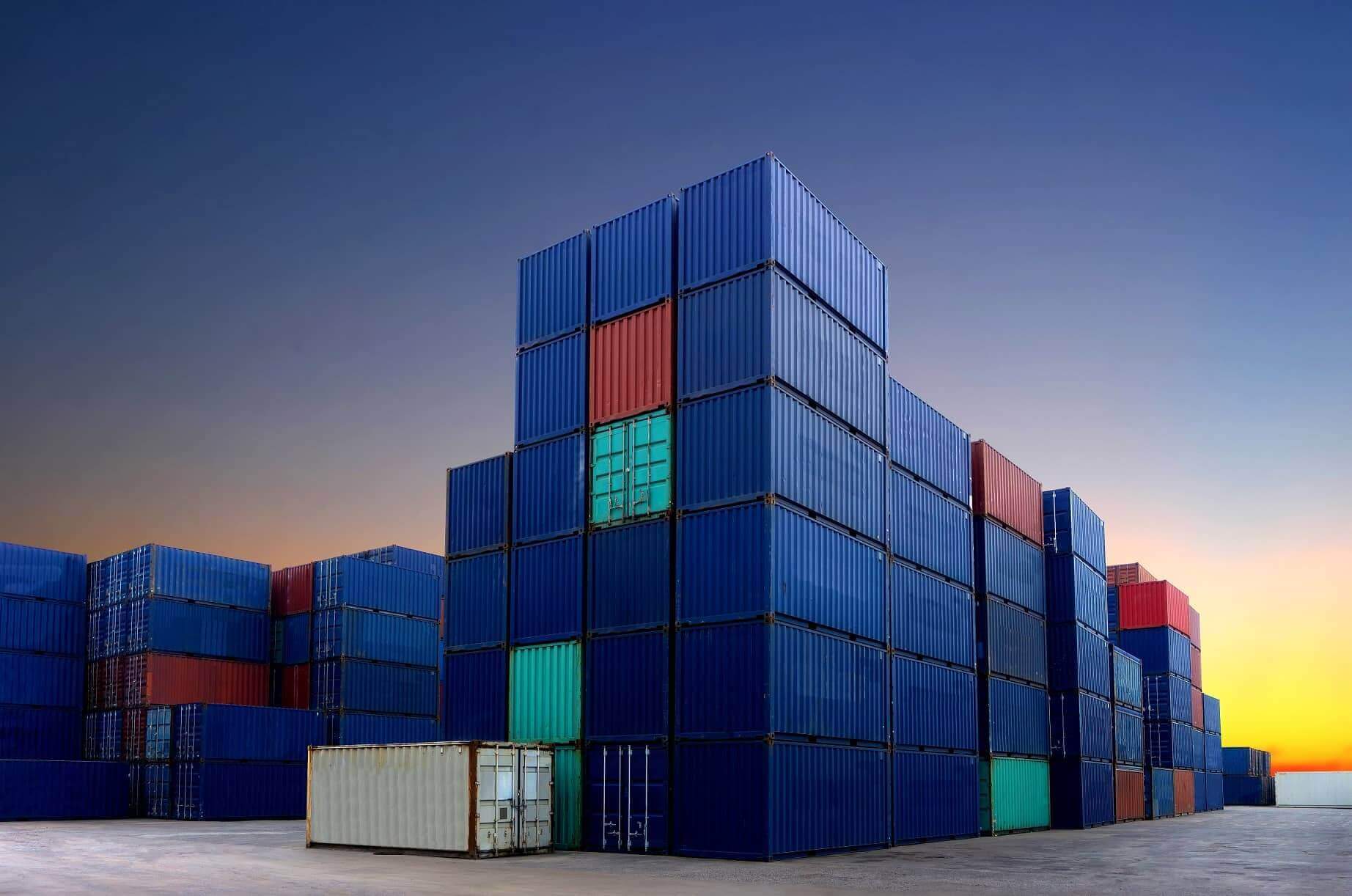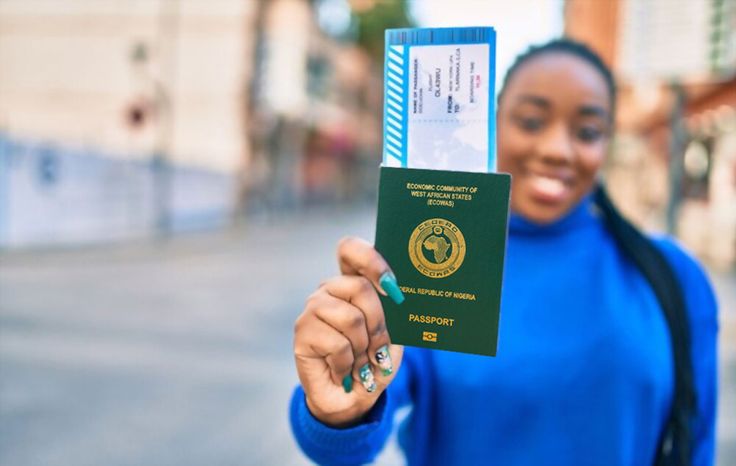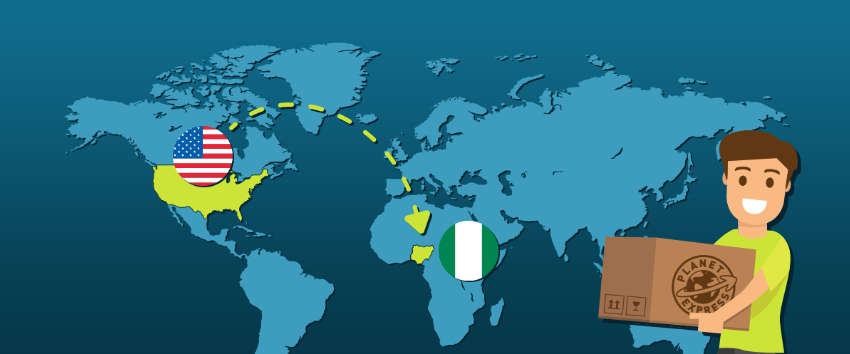The US e-commerce market is thriving, with projections estimating it will reach an impressive $8.1 trillion by 2026. This booming market represents a golden opportunity for businesses looking to introduce unique products from Lagos and across Nigeria to a vast, eager audience. However, shipping across the Atlantic can be complex, with several challenges to overcome. Having been through the process, we’ve compiled this comprehensive guide to help you navigate shipping from Nigeria to the US. In this guide, we’ll cover everything you need to know—from understanding the various shipping options available to securing your package and tips for dealing with US customs.
1. Know What You Can (And Cannot) Ship
The first step when shipping products from Nigeria to the US is to thoroughly study the US import laws to understand what items are permitted. Below are key categories to keep in mind:
-
Generally Allowed
Items like clothing, electronics (with some limitations depending on the specific device and its functionality), artwork, books, and non-perishable food products (provided they are properly labeled with ingredients and comply with specific regulations) are generally allowed for import.
-
Absolutely Prohibited
Certain items are outright prohibited due to safety and security concerns. These include perishables (such as fresh fruits, vegetables, and meats), flammable liquids (gasoline, paint thinners), hazardous materials (chemicals, explosives), weapons (including firearms and replicas), and live animals (with strict regulations for exceptional cases involving specific animals with necessary permits).
-
Proceed with Caution
Items like medications, plants (restrictions may apply depending on the type of plant and its soil content), and some electronic devices with built-in batteries might require additional permits or certifications before they can be imported.
To stay informed, it’s important to regularly check the US Customs and Border Protection (CBP) website for updates on regulations.

2. Choose a Reliable Courier Service
Choosing the right courier service depends on your needs—whether you prioritize reliability, cost, or additional services like product sourcing or customs assistance. There are several options to consider, each with its own strengths:
-
International Courier Companies
Big international courier services like DHL, FedEx, and UPS offer excellent global coverage, tracking capabilities, and door-to-door delivery. While their services are reliable and offer comprehensive tracking, they can sometimes be more expensive compared to local providers.
-
Nigerian Courier Services
For more competitive rates and specialized services, consider Nigerian courier companies that focus on shipping to the US. These services often offer a more personalized touch, which can be an advantage, especially if you ship frequently.
One such Company is CountyCargo, we provide cost-effective air and sea options, expert packing services, and tailored shipping solutions ensuring your package gets to your doorstep wherever you are. Allowing you to focus on growing your business with peace of mind.

READ MORE
How Does Shipping Work in Lagos?
3. Package Your Products
By following the packaging and documentation tips listed below, you can ensure your shipment passes through customs smoothly and reaches its destination without unnecessary delays.
-
Choose a Sturdy Box
Select a durable cardboard box that can handle the weight and size of your items. Make sure to choose a box that is slightly larger than the item itself to allow room for protective padding around it. This will help cushion your goods during transit.
-
Wrap with Care
For extra protection, wrap your items carefully in bubble wrap, foam, or other cushioning materials. If your item is particularly delicate, consider placing it in a smaller box first, and then putting that box inside a larger one with additional padding. This double-boxing method adds an extra layer of security.
-
Label Clearly
Proper labeling is crucial. Mark the box clearly with “Made in Nigeria” and “For Export” to indicate the origin of the products. Also, make sure to include the recipient’s full address, including the zip code, as well as your own contact information.
-
Documentation for Customs
To speed up the customs process, include a detailed packing list inside the box. This should list each item, its quantity, and its value. This documentation will help customs officials assess your shipment quickly and avoid delays.
Additional required documentation for customs clearance may include:
- Commercial Invoice: A detailed invoice that includes a description of the items, their value, and the terms of sale.
- Certificate of Origin: A document certifying where the products were manufactured.
- Health or Phytosanitary Certificates: If your shipment includes food or plant-based products, these certificates are required to ensure they meet US import regulations.
- Import Permit: If required for specific items, such as pharmaceuticals or electronics with certain features, include the appropriate import permits or certifications.

4. Track And Trace Your Package
Most shipping companies have websites where you can track your package. This means you can see where your package is, from the moment it leaves Nigeria until it gets delivered in the US. This is a great way to stay calm and know exactly what’s happening with your shipment. All you need to do is find the website of the company that’s shipping your package and enter a special code they give you (usually called a tracking number).
5. Customs Clearance
Once your shipment reaches Lagos, it will go through customs clearance. This process involves verifying the contents of your shipment and assessing any applicable duties or taxes. Think of it like your products showing their passports to enter Nigeria. CountyCargo, while they can’t handle the clearance process themselves, has tons of experience and can offer great tips and resources to help you breeze through this step.
Here’s a quick rundown of what to expect:
- Duties and Taxes: These are like little fees that Nigeria charges on imported goods. The exact amount depends on what you’re shipping and how much it’s worth. It’s a good idea to let your recipient in Lagos know about these potential charges beforehand, so there are no surprises!
- Restricted Items: Just like some countries don’t allow certain things in, Nigeria has its own list of restricted items that can’t be imported. Make sure to check with CountyCargo or the Nigerian Customs Service website for the latest list of these items to avoid any delays.
6. Delivery to Lagos
Once your shipment has breezed through customs clearance in Lagos, it’s time for the grand finale: delivery to your customer! CountyCargo makes this super easy with its convenient door-to-door delivery service. Imagine your products being carried right to their doorstep! This means no extra legwork for your customer. They won’t have to worry about picking up packages or navigating unfamiliar delivery depots. CountyCargo takes care of everything, ensuring your products arrive safely, securely, and right where they need to be. This not only creates a positive experience for your customer, while also streamlining the entire shipping process for you, saving you time and effort.
Shipping your amazing products from the US to Lagos doesn’t have to be a headache. By following these simple steps and choosing a reliable shipping partner like CountyCargo, you can turn the whole experience into a smooth and stress-free journey. CountyCargo is like your personal shipping sherphard, guiding you through every step and taking care of all the intricate details. From packing your products securely to navigating customs clearance in Lagos and ensuring door-to-door delivery to your happy customer, they’ve got you covered. So, with this handy guide as your roadmap and CountyCargo by your side, you’re now fully equipped to explore the exciting opportunities that await you in the Lagos market! Whether you’re sending special gifts, supporting loved ones back home, or expanding your business ventures, you can do it all with confidence.
Frequently Asked Questions
Q: What Happens If My Package Gets Stuck in Customs?
If your package is delayed or held up in US customs, it’s usually due to additional inspections or incomplete documentation. This can add some time to the delivery process, but don’t worry—it’s a normal part of international shipping. To minimize delays, make sure your paperwork is in order, especially the commercial invoice with a detailed list of the items, their value, and quantities. If customs needs further information, either CountyCargo or the customs office will contact you directly. Be sure your contact details are up-to-date to ensure a quick resolution.
Q: What is the Cost to Ship from Nigeria to the US?
Shipping costs from Nigeria to the US depend on various factors, including the size, weight, and type of shipment, as well as the shipping method you choose (air or sea freight). For an accurate quote tailored to your specific needs, we recommend reaching out to CountyCargo directly. We specialize in providing competitive rates and expert shipping services, so our team will guide you through the best options for your shipment.
Q: How Long Does It Take for My Package to Arrive in the US?
Shipping times vary depending on the shipping method and the nature of your goods. Air freight typically takes between 5 to 10 days, while sea freight may take around 2-4 weeks. CountyCargo provides both air and sea options, so we’ll help you choose the best method based on your timeframe and budget. Feel free to contact us for more precise delivery estimates based on your shipment details.









